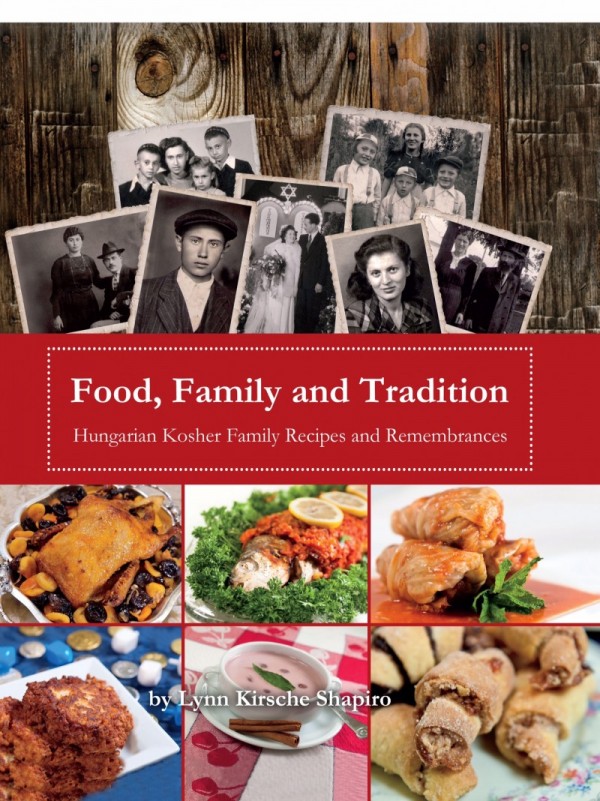
Food, Family and Tradition
Lynn Shapiro Nick Ulivieri
Cherry Press, LLC
August 2014
$35.00/Hardcover
ISBN: 978-0-9898479-0-2
Lynn Shapiro Nick Ulivieri
Cherry Press, LLC
August 2014
$35.00/Hardcover
ISBN: 978-0-9898479-0-2
Lynn Kirsche Shapiro loves to cook; it’s a family tradition. She especially loves sharing family recipes that keep her Hungarian Jewish history alive. Cooking was Lynn’s family’s method of creativity, talking while they cook and sharing their love of good food. She learned to cook with her parents, passing that love on to her children and now her grandchildren. As the daughter of Holocaust survivors, Lynn has been sharing her family’s stories for years at various Jewish organizations. For years she taught math at various colleges, in addition to directing the math program in a Jewish women’s college. Additionally, she taught and facilitated Jewish classes throughout her community. Lynn has played an integral role in her parent’s business, Hungarian Kosher Foods, the all kosher supermarket in Skokie, IL, consulting for large dinners, and developing recipes for many of the home-cooked foods sold is the store. Lynn lives in Chicago and travels often to Israel. She has 4 children and 9 grandchildren.
FOOD, FAMILY, AND TRADITION: Hungarian Kosher Family Recipes and Remembrances by Lynn Kirsche Shapiro, a daughter of holocaust survivors, contains more than 150 original, never-before-published recipes with full-color photographs and preparation methods updated for the modern kitchen. Through telling the story of her father and mother, Sandor and Margit Kirsche (founders of Hungarian Kosher Foods, the largest all-kosher supermarket in the Midwest), and presenting their never-before-published family recipes, the voice of one family becomes the voice of many who lived in that time and place. And their survival becomes a testament to the courage and resilience of all Survivors who had the courage and strength to rebuild their lives.
“My hope is that through my family’s stories you will see a picture of the community that was suddenly and brutally extinguished, the dedication to Jewish law that was solid and resilient, and the warmth of the Jewish community. I hope that through these centuries-old recipes you will get a taste of the culinary tradition of the Jews in Hungary and Czechoslovakia. Finally, I hope that you will feel the dedication of the Holocaust survivors—those who remained in Europe, those who went to Israel and those who came to the States.”